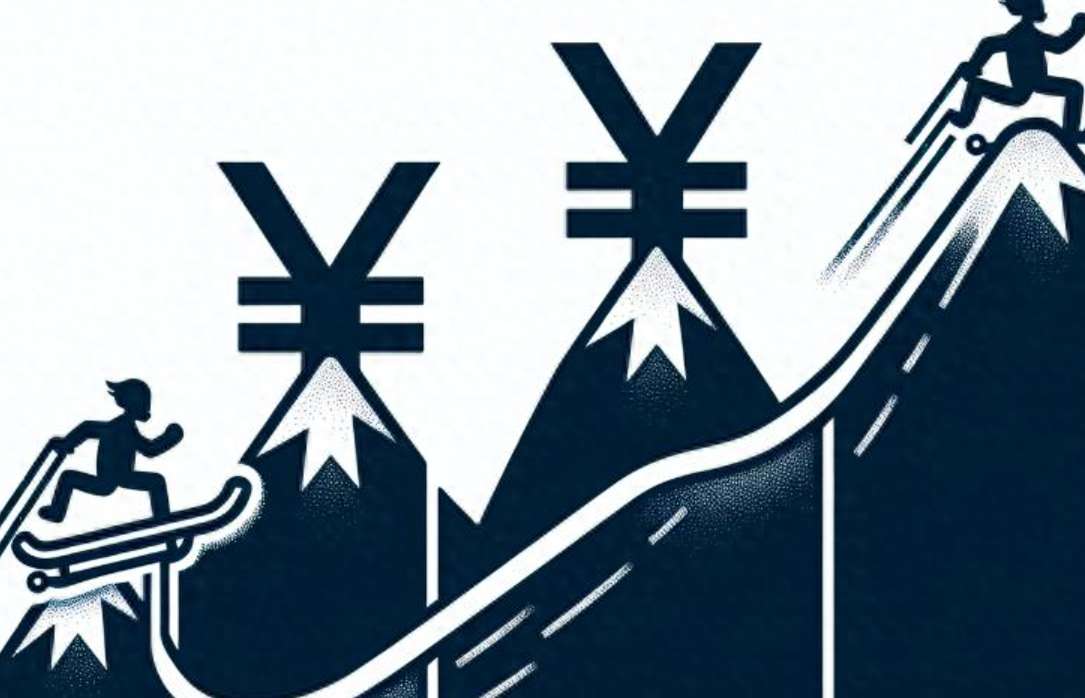Yen Surges in Response
Advertisements
In recent discussions regarding Japan's economic policies, Governor Kazuo Ueda of the Bank of Japan (BOJ) has made headlines by confirming that a decision to possibly raise interest rates will be deliberated next week. Echoing sentiments expressed by BOJ Deputy Governor Ryozo Himino, Ueda's statements have stirred the financial markets as the anticipation for a rate hike continues to grow.
During a meeting with executives from local banks, Ueda emphasized that the economic policies introduced by the new U.S. administration, combined with the momentum of wage negotiations in Japan this year, will play a pivotal role in determining the timing of any impending interest rate changes. The backdrop of Ueda's comments reflects a nuanced interplay between domestic economic conditions and international influences.
Ueda noted that during a recent meeting with the heads of regional branches, there were numerous positive discussions surrounding wage prospects. This highlights a shift in the labor market, driven largely by acute labor shortages, which has compelled companies to consider salary increases more seriously. As the narrative unfolds, Ueda's comments suggest a readiness from the BOJ to respond to evolving economic indicators. “We are currently analyzing data comprehensively, and we will compile the findings in our quarterly outlook report,” Ueda stated, indicating that decisions will hinge on a careful evaluation of economic signals.
This strategic approach resonates in the market, as evidenced by the rising value of the yen against the dollar – marking an increase of more than 0.6% on the day of Ueda's announcement – and the 10-year Japanese Government Bond yield hitting a high of 1.255%, levels not seen since April 2011. Financial analysts, like Takuya Kanda from Gaitame.com, interpret Ueda's remarks as a sign of optimism towards a forthcoming rate hike.

The BOJ ended its long-standing policy of negative interest rates in March of the previous year, followed by an increase in the short-term rate target to 0.25% in July. The central bank's previous decisions were heavily influenced by the belief that Japan could sustainably achieve its inflation target of 2%. Ueda has signaled that if wage increases become more widespread, bolstering consumption and enabling firms to raise the prices of goods and services, then the BOJ would be prepared to consider further rate hikes.
The broader narrative surrounding Ueda's statements is underscored by the uncertainty regarding domestic wage prospects and the economic policies of the newly elected U.S. President. This uncertainty was previously articulated as a reason for postponing interest rate hikes last month, thereby putting the BOJ’s outlook on wages and the anticipated U.S. economic policies under the spotlight.
As economic data increasingly points to a trend where companies are likely to continue to boost wages to counter labor shortages, the BOJ's latest analysis has indicated that salary increases are beginning to proliferate across various sectors and company sizes. This development underscores the ongoing conditions that could support a near-term rate hike.
Market analysts suggest that the final hurdles for a potential rate hike during the BOJ's upcoming meeting will hinge largely on the elected President's stance on tariffs and how markets react after the inauguration on January 20. Keeping a watchful eye on these developments, UBS presents a forecast predicting a possible interest rate increase to 0.5% next week, unless significant market shocks are triggered by the inauguration.
This forecast is predicated on a thorough analysis of Japan's economic indicators, such as wage growth patterns, inflation rates, and corporate profits, as well as the assumption that U.S. policies will not induce major disruptions. Under this scenario, the Japanese economy is expected to maintain a stable growth trajectory, while inflation is projected to remain near target levels, thereby creating conditions conducive to further rate hikes.
Moreover, UBS anticipates that the BOJ may enact additional increases in July and December later in the year, reflecting a long-term confidence in Japan's economic recovery and stability. The expectation is that as the economy continues to rebound, the central bank will gradually adjust its monetary policy to ensure sustained growth and price stability.
Of course, UBS cautiously acknowledges that should financial markets experience panic selling post-inauguration, a rate increase could be shelved at least until the next meeting. "However, our current assumption is that there will not be major shocks following January 20," highlights the firm. This insight not only emphasizes the anticipation embedded in forecasts but also reflects the nuanced understanding of market volatility impacting economic policymaking.
In conclusion, the discourse around Japan's monetary policy and interest rates paints a picture of cautious optimism amid a complex global economic landscape. The BOJ's decisions will likely remain sensitive to both domestic economic performance and international developments, as it navigates the challenging waters of ensuring Japan's economic stability while fostering sustainable growth.
Categories
Latest Post
- Fiscal Revenue Decline Raises Local Debt Risks
- Positive Outlook for U.S. Earnings Season
- U.S. Stocks Volatile, Nasdaq Sees Decline
- U.S. CPI Disrupts Rate Cuts
- December CPI Exceeds Expectations While PPI Falls Short
- Is the U.S. Government Debt Bubble About to Burst?
- Germany in Second Straight Year of Recession
- Yen Surges in Response
- UK December CPI Unexpectedly Slows Down
- What to Do if Interest Rates Rise This Year